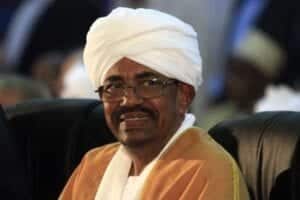
On Monday, Sudan’s Foreign Affairs Minister Ali Ahmed Karti delivered the invitation for President Kenyatta to tour Khartoum.
Mr Karti was in Nairobi for a one-day official visit in which he signed two agreements with Kenya’s Foreign Affairs Cabinet Secretary Amina Mohamed.
The two pacts were on political consultations as well as diplomatic cooperation.
“It has been a desire of not just me but his Excellency (President Uhuru Kenyatta) to visit the Sudan and we are hoping that we can do that soon.
“And after that we are also hopeful that President Bashir will also pay us a visit,” Ms Mohamed told journalists in Nairobi after meeting with the Sudanese top diplomat.
UHURU COULD VISIT SOON
Ms Mohamed told reporters that President Kenyatta could “hopefully” visit Khartoum in the first quarter of 2015.
Bashir’s invitation signals a change in relations between Kenya and Sudan that had been lukewarm for several years now.
The last state visit by a Kenya President to Khartoum was during President Moi’s tenure and although President Bashir toured Kenya in August 2010, it was not a state visit.
He had come to attend the promulgation of Kenya’s new Constitution.
The invitation comes just three weeks after the International Criminal Court (ICC) suspended investigations into two killings allegedly committed by Bashir’s soldiers in troubled Darfur.
President Bashir was indicted by the ICC for war crimes, genocide and crimes against humanity.
In 2013, that indictment meant Bashir would not attend President Kenyatta’s inauguration ceremony in Nairobi although was invited.
ICC supporters had threatened to go to court again to compel Kenya to arrest Bashir. He stayed away.
It also comes a few weeks after ICC Prosecutor Fatou Bensouda announced she would withdraw charges President Kenyatta because of what she said was lack of sufficient evidence.
AU STAND ‘VINDICATED’
A communiqué by the two foreign ministers released after their talks indicated they had discussed the ICC.
They agreed that the decision by the prosecutor “vindicated the stand of the African Union (to oppose the prosecution of any sitting head of state).”
The two ministers called for renewed efforts and commitment by the continent to chart its destiny and establish internal mechanisms to tackle the continent’s internal challenges.
Kenya’s Foreign Ministry insisted the invitation was not prompted by the events at the ICC but was a result of work in progress.
“As you know, it is not always easy to get time on our president’s calendar to carry out visits,” Ms Mohamed said.
“There are no specific challenges. It is just an issue of timing; it is an issue of preparations. We want to make sure that this visit is as successful as it can be and so we were working on the different issues that the two presidents will be discussing,” she said.
Mr Karti said the invitation was meant to boost relations between the two countries that once shared a border before the birth of South Sudan in 2011.
“We assure you that Sudan will keep this relationship and we will work together.
“You will see the shuttling of high-level officials between Kenya and Sudan soon,” he said at a press conference.
INTERNATIONAL CRITICISM
Bashir’s visits to Kenya had always been subject to international criticism.
In 2011, a Kenyan High Court judge issued an arrest warrant against Bashir if “he ever sets foot” in Kenya.
It followed a petition by the Kenyan chapter of the International Commission of Jurists that argued Kenya had a duty under the ICC’s Rome Statute to arrest him.
It was a decision criticised by the Intergovernmental Authority on Development, which argued that the order would threaten regional stability.
In response, Sudan gave Kenya’s ambassador in Khartoum at that time, Robert Ngesu, 72 hours to leave the country and summoned its ambassador from Nairobi.
Bashir later added threats of sanctions, such as banning any flights destined to Kenya from using Sudan airspace.
But Kenya moved quickly to cool the tension when President Mwai Kibaki sent his Vice-President Kalonzo Musyoka to deliver “a special message”.
Meanwhile, the government appealed the decision, but the Court of Appeal declined to set aside the order.
-nation.co.ke









